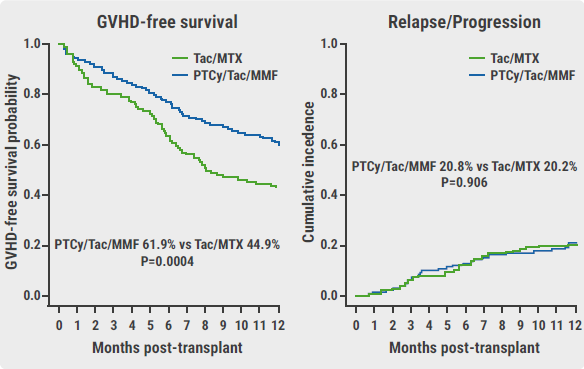https://doi.org/10.55788/ff58a438
Prof. Stacy Croteau (Harvard Medical School, MA, USA) presented long-term data from the phase 1/2 SPK-8011 study (NCT03003533/NCT03432520), that evaluated the safety and efficacy of adeno-associated virus (AAV)-mediated FVIII gene transfer for patients with haemophilia A with FVIII levels ≤2% [1]. After a 1-hour outpatient intravenous infusion, the included patients (n=24) were followed up for 52 weeks. Hereafter, a 4-year long-term follow-up study was initiated, with visitations every 3 to 6 months.
After a median follow-up of 191 weeks, no FVIII inhibitor developments, thrombotic events, or deaths were reported. One grade 2 transaminitis, related to SPK-8011 treatment, led to hospitalisation for intravenous steroid administration. Other adverse events (AEs) related to SPK-8011 treatment were 11 cases of elevated alanine transaminase and 1 participant who experienced an acute infusion reaction. Also, vector shedding was undetectable after week 12. Prof. Croteau added that durable FVIII activity was observed in most participants, with expression levels within the ‘mild haemophilia’ range. Furthermore, the annualised bleeding rate was reduced with 82% in participants who received prophylactic FVIII prior to the study and with 99% in participants who were on prior on-demand treatment. Finally, the annualised FVIII infusion rate was 85.5 before infusion with SPK-8011 and 0.3 after infusion.
Prof. Croteau mentioned that there is a need to manage a presumed capsid immune response to further reduce the variability in FVIII expression following AAV-mediated gene transfer for haemophilia A. Studies that address this issue are ongoing.
- Croteau S, et al. Long-Term Durable FVIII Expression with Improvements in Bleeding Rates Following AAV-Mediated FVIII Gene Transfer for Hemophilia A: Multiyear Follow-up on the Phase I/II Trial of SPK-8011. Abstract 783, ASH 64th Annual Meeting, 10–13 December 2022, New Orleans, LA, USA.
Copyright ©2023 Medicom Medical Publishers
Posted on
Previous Article
« Long-term benefits from beti-cel in transfusion-dependent β-thalassaemia Next Article
C1 inhibitor deficiency linked to thrombosis »
« Long-term benefits from beti-cel in transfusion-dependent β-thalassaemia Next Article
C1 inhibitor deficiency linked to thrombosis »
Table of Contents: ASH 2022
Featured articles
Acute Lymphoblastic Leukaemia
Blinatumomab candidate for standard-of-care in newly diagnosed B-ALL
High-dose methotrexate or standard interim maintenance in young patients with ALL?
Acute Myeloid Leukaemia
Excellent results for triplet regimen in FLT3-mutated AML
MRD by qPCR prognostic of outcomes in venetoclax-treated NPM1-mutated AML
Promising results for triplet therapy with magrolimab in AML
Should we use intensive chemotherapy prior to allo-HCT in relapsed/refractory AML?
Chronic Leukaemia
Zanubrutinib wins battle of BTK inhibitors in relapsed or refractory CLL/SLL
Ibrutinib plus venetoclax displays long-term benefits in CLL
Multiple Myeloma
Talquetamab further investigated in heavily pre-treated MM after promising phase 2 data
Promising results of elranatamab for MM in phase 2 MagnetisMM-3 trial
Deep and durable responses for quadruple therapy in smouldering MM
Ultra-sensitive MRD assessment in MM with BloodFlow
CAR-Hematotox score proves useful in relapsed/refractory MM
Head-to-head: VMP versus Rd in transplant-ineligible MM
Lymphoma
Ibrutinib added to ASCT improves clinical outcomes in mantle cell lymphoma
High-dose chemotherapy plus ASCT superior to standard immuno-chemotherapy in primary CNS lymphoma
Odronextamab has considerable anti-tumour effects in relapsed/refractory diffuse large B-cell lymphoma and follicular lymphoma
Excellent results for AFM13-complexed NK cells in CD30-positive lymphoma
CAR-Hematotox score predicts toxicity, infections, and clinical outcomes in MCL
Myeloproliferative Neoplasms
Efgartigimod successful in immune thrombocytopenia
INCA033989: novel investigational agent for CALR-mutated MPN
Ruxolitinib mediates clonal evolution of RAS pathway mutations in MPN
Immune Thrombocytopenia
Long-term risk for haematologic disease in persistent, isolated mild thrombocytopenia
Various Topics
C1 inhibitor deficiency linked to thrombosis
Durable responses to gene therapy in haemophilia A
Long-term benefits from beti-cel in transfusion-dependent β-thalassaemia
Neutrodiet: non-restricted diet is the preferred option after SCT
Iptacopan offers solution for patients with PNH and residual anaemia after standard-of-care
Novel therapy may replace standard-of-care prophylaxis for GVHD
LMWH does not result in higher live birth rates in women with inherited thrombophilia
Related Articles

February 20, 2023
Novel therapy may replace standard-of-care prophylaxis for GVHD
February 20, 2023
Long-term benefits from beti-cel in transfusion-dependent β-thalassaemia
© 2024 Medicom Medical Publishers. All rights reserved. Terms and Conditions | Privacy Policy

